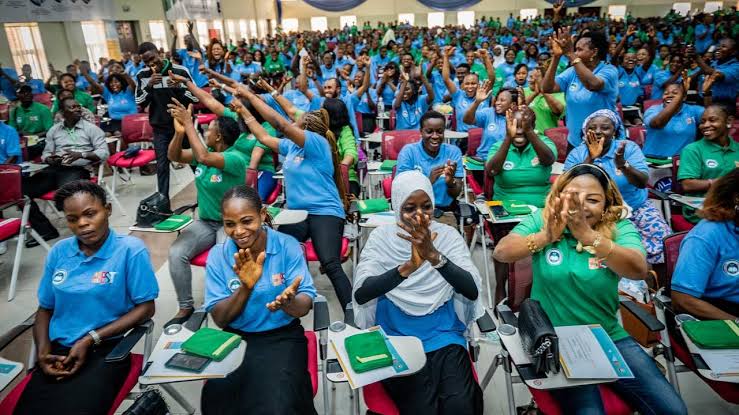Education and Economic Empowerment in Nigeria

Education and Economic Empowerment in Nigeria
Education and economic empowerment are crucial for Nigeria’s development, particularly for women. Investing in women’s education and economic empowerment can yield significant benefits, including improved health, nutrition, and education outcomes for families, as well as enhanced resilience to climate change.
The World Bank has approved $500 million for the Nigeria for Women Program Scale Up (NFWP-SU) to support the government in improving livelihoods for women. This program focuses on increasing financial inclusion for women through financial literacy, savings mobilization, and partnerships with financial service providers. By empowering women economically, Nigeria can unlock significant economic gains, potentially between $9.3 billion and $22.9 billion.
Key drivers of women’s economic empowerment in Nigeria include:
– *Education*: Education is a necessary factor in achieving economic development and empowering women.
– *Digital and Financial Literacy*: Enhancing digital and financial literacy skills can significantly contribute to women’s economic empowerment.
– *Household and Group Membership Agency*: Women’s agency within households and group membership can also play a vital role in their economic empowerment.
Vocational education is another pathway to sustainable economic empowerment in Nigeria. By acquiring vocational skills, individuals can access better job opportunities and contribute to the country’s economic growth.
However, research suggests that women’s education and economic empowerment do not directly reduce gender-based violence (GBV) in Nigeria. In fact, women with higher education and economic status may experience higher incidence of domestic violence in some cases. This highlights the need for gender education intervention programs that challenge social norms and promote equal power relations.
Overall, education and economic empowerment are essential for Nigeria’s development, and targeted programs can help address specific challenges and promote inclusive growth.






